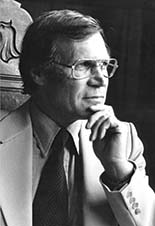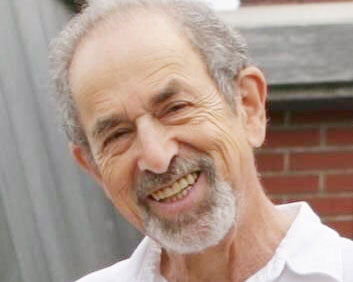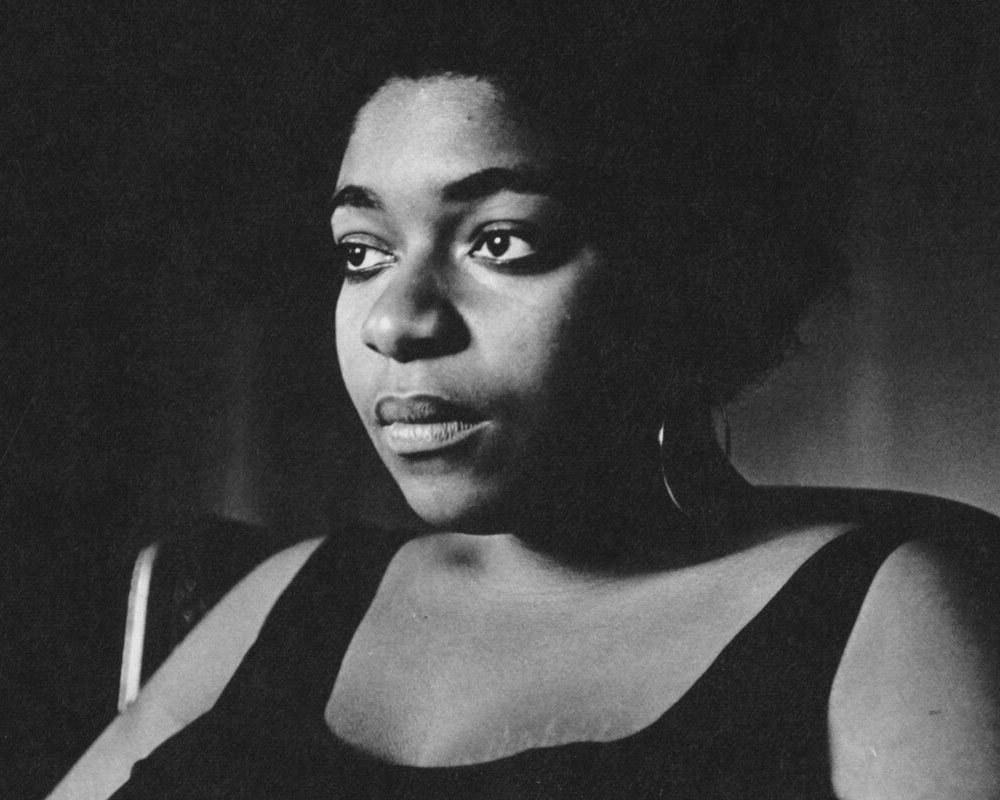Ottomar Rudolf, Faculty

Courtesy of Special Collections, Eric V. Hauser Memorial Library, Reed College.
Professor Ottomar Rudolf [German 1963–98] March 10, 2013, in Portland, from a stroke.
Scholar, athlete, and veteran of two wars, Ottomar Rudolf was a passionate and gifted teacher and a tireless champion of the arts.
Born in Pforzheim in the Black Forest of Germany in 1929, Ottomar Rudolf spent his childhood in Ulm, a medieval city on the Danube River, known as the birthplace of Einstein and home to the tallest church tower in the world. As the Third Reich rose to power, he and two older brothers were targeted by intense propaganda. Standing in opposition to this was his father, a decorated World War I veteran and an antifascist, and his mother, a devotee of Catholicism and a German patriot. Their views made “a tremendous impression” on Ottomar, he said. Something other than the Nazi fervor “took hold” and “saved” him in many ways. He joined the Catholic Youth Organization and the Hitler Youth, going to meetings for the latter after attending morning mass. At 15, he enlisted in the Panzer tank corps, inspired by his hero, Field Marshal Rommel. The corps went to Normandy and to the Eastern Front, but a bullet wound sent Ottomar back to Ulm to recoup, ultimately preserving his life. He survived disappearances and deaths of friends and family, including a brother; hunger and scarcity; and the terrifying bombing of Ulm in 1944, with its flaming aftermath. A recounting of this time is recorded in his autobiography, I Remember: A Boy’s Years in Nazi Germany, published in 2012.
Postwar in Ulm, Ottomar began training for the university, fell in love with theatre, joined the church chorus, and became a musical conductor. At the behest of an uncle, he went to New York in 1946 to study engineering at Manhattan College. A short time into the program he switched to philosophy. “I was introduced to theology, meaning St. Thomas Aquinas, and I got hooked on him. Thomas Aquinas was the one who led me into philosophy.” Always balancing study with athletics, Ottomar joined the track team and became captain of the ski team.
After earning a BA, he enrolled at the University of Pennsylvania for graduate study and taught at St. Joseph’s College (University). The U.S. Army drafted him into the Korean War and sent him to Fort Dix, where he trained with the signal corps. His tour of duty included a year in Korea and two years in Germany in the role of a photographer. He also worked for Stars and Stripes.
Back in New York, he returned to St. Joseph’s to teach and to Penn to complete a PhD in German, writing a dissertation on “the good age,” 18th-century German literature. He taught at Bryn Mawr and Haverford before coming to Reed in 1963. Reed’s burgeoning German department consisted of Kaspar Locher [German 1950–88], Vincenz Panny [German 1963–84], and Dieter Paetzold [German 1963–86]. Shortly after his arrival, Ottomar presented his first humanities lecture on Goethe’s The Sorrows of Young Werther. Students applauded him. “I loved lecturing in humanities. It’s hard work, because you have to prepare. I believe in a real lecture, not just giving some ideas out there.” And he thrived in conference classes. “I taught with some emotional pitch in it, because I noticed students don’t want to fall asleep.” When he became department chair, he invited all department members to teach language and literature, rather than employ a single language instructor or rely on lessons done in language lab. Teaching, he said, needs to be a human experience.
Sabbaticals provided an opportunity to do further research on his specialty, the Sturm und Drang movement. He published the book Jakob Michael Reinhold Lenz: Moralist und Aufklärer in 1970. He also helped bring about an exchange program for Reed students with the University of Munich. Listening to afternoon concerts in Munich, Ottomar envisioned what would become Music Matinees: Sunday afternoon concerts featuring folk, jazz, and classical music in the Reed commons. The program ran under his direction for 28 years with financial support from the college and the nonprofit Reed College Music Associates, which he also organized and chaired. “I believe the city needed something of excellence that was free,” he said. Ottomar served on the Portland Youth Philharmonic and Portland Opera boards, chaired the Portland Colleges Cultural Affairs Board, and was on the committee that gave Chamber Music Northwest its start. He was hired to be dramaturge for a New Rose Theatre German production, and lectured on humanities and on art, which he loved and collected.
Portlanders knew of his association with the Portland Brewing Company, which he helped get underway in 1985, arranging for brewing materials to be shipped from Bavaria. The brewery honored him with its annual Oktoberfest and the accompanying celebratory beer, Uncle Otto’s. He also was honored with the Bundesverdienstkreuz 1. Klasse (the officer’s cross of the order of merit) presented to him by the Federal Republic of Germany in 1989.
Only a few years into his career at Reed, he was appointed to college committees, including the Faculty Advisory Committee, where he worked directly with the president and trustees. Trustee Laurie Miller Cummins ’39 introduced him to her daughter, Lesley, whom he married. They raised a son, Wolfgang, and a daughter, Gabrielle, and later parted. He also served on the Administration Committee, where he worked alongside registrar Ellen Knowlton Johnson ’39 [administration 1945–81], “one of the great ladies of our college,” and the Admissions Committee.
Ottomar characterized his academic position as conservative, belonging to Reed’s “Old Guard.” He started the German House and directed and performed in the annual play. In his honor, a linden tree grows in front of the house. Ottomar taught for the Reed MALS program and for Reed Elderhostel programs. He sang in the Reed Chorus. Always intent on achieving balance, he brought intercollegiate soccer to the college and coached a winning team.
Acting on his own recommendation to keep departments open to new and young faculty, he chose to retire in 1998, intending to travel, write, and “do other things, like going to more concerts.” He attended monthly lunches with members of the Old Geezer Society: Larry Ruben [biology 1955–92], Frank Gwilliam [biology 1957–95], Bert Brehm [biology 1962–93], Ray Kierstead [history 1978–2000], and Paul Bragdon, president emeritus. He fished on the Rogue River with his son. And he unexpectedly met Catherine, who became his wife in 2003. She welcomed students to their home, gained an appreciation for Ottomar’s legacy and Reed, and established the Catherine and Ottomar Rudolf Scholarship to assist students of German language and literature.
Reed was home, Ottomar said. “It is the college I’ve given my life to, and the college has given its life to me. So, I’m honored that I was hired, and given tenure, and was able to teach so long.”
Survivors include Catherine, his children, and two grandchildren.
Appeared in Reed magazine: June 2013





![Photo of Prof. Marvin Levich [philosophy 1953–94]](https://www.reed.edu/reed-magazine/in-memoriam/assets/images/2022/LTL-levich1.jpg)
![Photo of President Paul E. Bragdon [1971–88]](https://www.reed.edu/reed-magazine/in-memoriam/assets/images/2020/Bragdon.jpg)
![Photo of Prof. Edward Barton Segel [history 1973–2011]](https://www.reed.edu/reed-magazine/in-memoriam/assets/images/2020/Segel.jpg)








































































